illness
Latest

Stanford, Scripps and Fitbit try using wearables to detect infections
Stanford, Scripps Research and Fitbit have unveiled an initiative that, if successful, would use wearables to catch the early signs of infection. The project will study data from five different wearables, each of which will have its own algorithm.

Weather Channel app uses Watson to tell you when flu season is coming
Are you the sort who grows wary around other people when flu season hits? You now have another tool in your (slightly anti-social) arsenal. The latest version of the Weather Channel app for Android and iOS now includes a Flu Insights feature that uses IBM's Watson to warn you when influenza is likely to be on the warpath. The team-up wields machine learning to provide a 15-day flu forecast as well notifications that pop up at key moments, such as the start of flu season or confirmed outbreaks. Ideally, this will keep you from going to a house party full of soon-to-be-sick virus carriers.
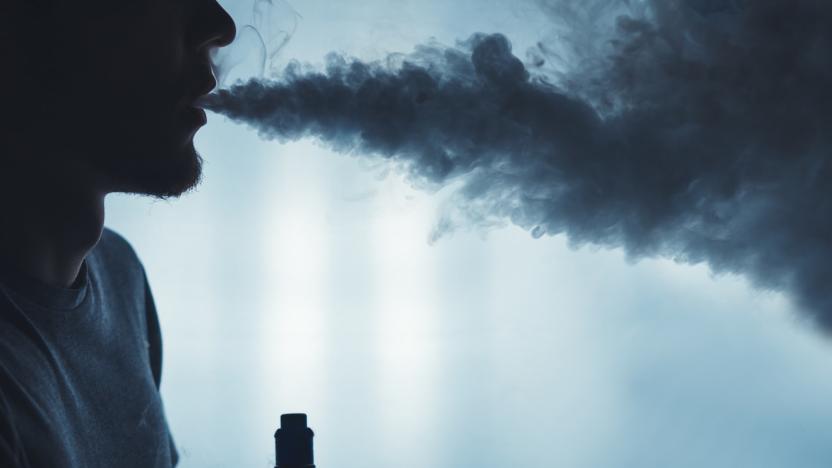
CDC confirms 2,051 cases of vaping-related lung injury
The number of vaping-related lung injuries is up to 2,051, the Center for Disease Control (CDC) said in a statement today. Health officials are now referring to the mystery illness as EVALI, short for e-cigarette, or vaping, product use associated lung injury. Cases of EVALI have been reported in 49 states (all but Alaska) and the District of Columbia, and a total of 39 deaths have been confirmed.
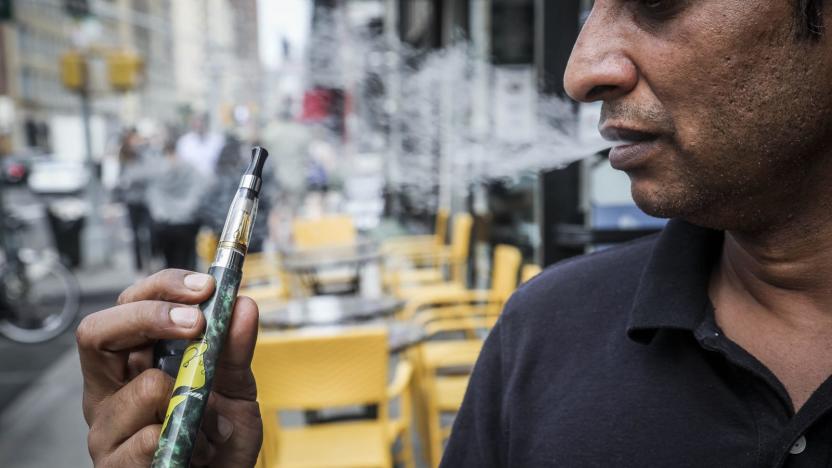
The FDA has opened a criminal investigation into vaping
The Food and Drug Administration opened a criminal investigation into the vaping supply chain earlier this summer, it has emerged. The Office of Criminal Investigations started the probe following reports of a vaping-related lung illness. The agency now says more than 530 people have been affected, and seven deaths have been attributed to the illness thus far.

CDC warns against vaping until it figures out what’s making people sick
Until the Center for Disease Control can figure out what's causing the mysterious lung illness associated with vaping, it's cautioning people against e-cigs. Last week, it launched a joint investigation with the Food and Drug Administration into a respiratory illness reported after vaping. At the time, it said 215 possible cases had been reported from 25 states, and at least two deaths have been documented. "While this investigation is ongoing, people should consider not using e-cigarette products," the CDC wrote in a press release today.
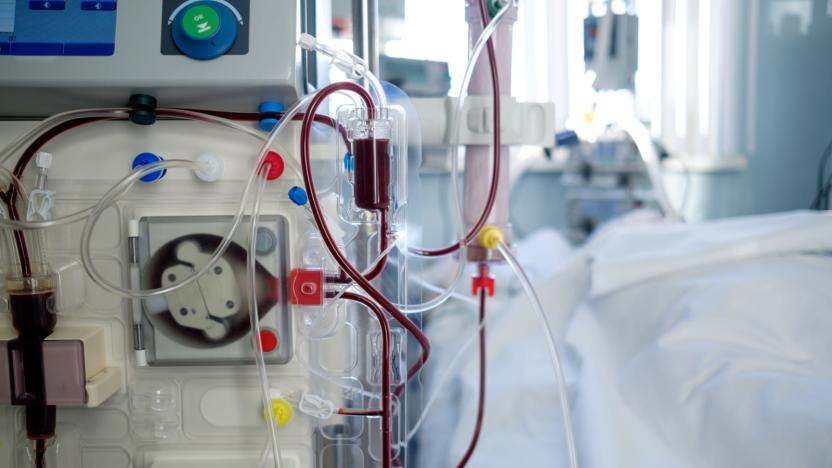
DeepMind AI can predict kidney illness 48 hours before it occurs
Acute Kidney Injury (AKI) kills 500,000 people in the US and 100,000 in the UK annually, often because it's not detected soon enough. Researchers want to use AI to change that. DeepMind, the Alphabet-owned AI company, partnered with the US Department of Veterans Affairs (VA) to develop an AKI prediction algorithm. In a paper published in Nature today, the partners share their findings that the algorithm can predict the presence of AKI up to 48 hours before it happens. The model correctly identified 9 out of 10 patients whose condition worsened to the point that they needed dialysis.
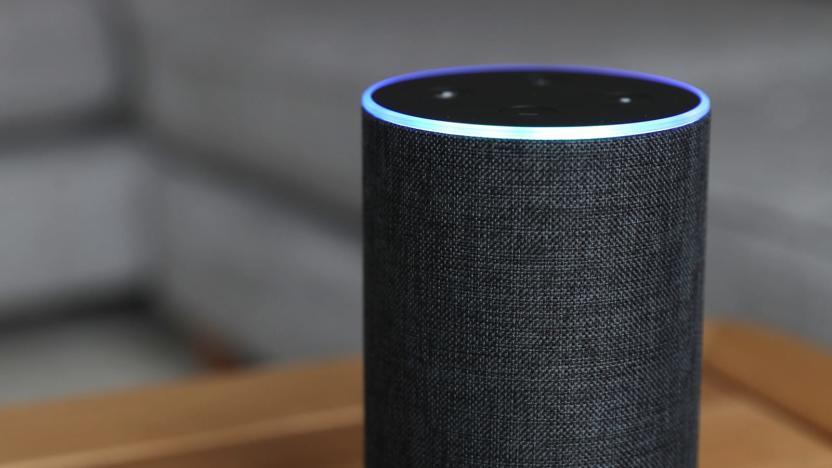
Amazon's Alexa will give medical advice from the NHS
The NHS has teamed up with Amazon to bring its health information to Alexa. As part of the NHS' long term plan to make its services available digitally, users will soon be able to ask Alexa questions such as "Alex, how do I treat a migraine?" or "Alexa, what are the symptoms of chicken pox?" Alexa will then provide information drawn directly from the NHS website.

Samsung reaches final settlement with cancer-stricken employees
After 11 years of controversy, Samsung has apologized for creating an unsafe work environment that resulted in a number of former employees contracting leukemia and other cancers, according to the Associated Press. The company has vowed to compensate ill workers by 2028, per Reuters. The announcement comes weeks after Samsung reached a final settlement with Banolim, a group representing ex-Samsung workers and their families.
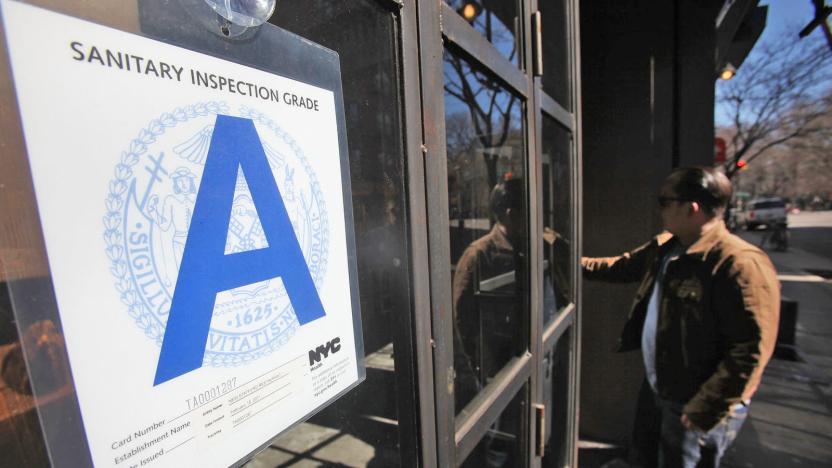
Google model identifies restaurants that could give you food poisoning
Google could soon tell you which restaurants are more likely to give you food poisoning, thanks to an algorithm that can identify lapses in food safety in near real time. Working with researchers from Harvard University, Google tested a machine-learned model in Chicago and Las Vegas to identify user search queries such as "stomach cramps" or "diarrhea", and then cross-referenced them with saved location history data -- in particular recently-visited food establishments -- from the smartphones used to make those searches.

Alphabet starts collecting health info to better predict disease
It didn't take long for Alphabet's Verily to get its watch-based health study off the ground. The life sciences company has launched its 4-year research initiative, Baseline, to potentially spot early signs of diseases before obvious symptoms appear. Verily's health-tracking Study Watch plays a central role, of course, as it will track everything from heart rate to ECGs to the skin's electrical conductivity. However, that's just one piece of the puzzle -- the team will look at numerous other factors to see where disease begins.

Scientists watch an immune system fight the flu in real time
To date, biologists have typically had to study the progress of a virus through indirect means, such as studying the antibodies -- actually tracking the viruses themselves has been difficult. However, researchers say they've found a way to follow the progress of a virus in real time. By using multiphoton microscopy in tandem with a laser and fluorescence, the team monitored influenza virus in a mouse's trachea (where the transluency made imaging possible) through the infection and immune system response.
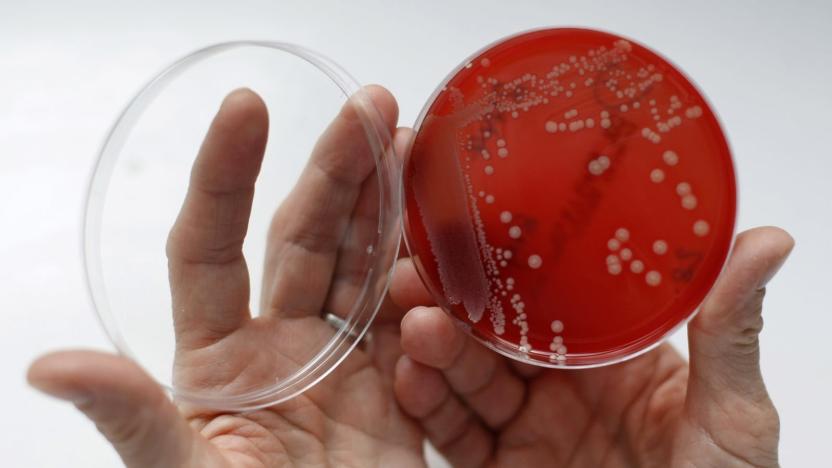
Artificial molecules fight drug-resistant 'superbugs'
Scientists are clearly picking up the pace in their quest to kill antibiotic-resistant "superbugs." Teams at the Universty of Melbourne and UT Southwestern Medical Center have developed composite molecules that overcome the defenses of stubborn bacteria, promising treatment for illnesses that have built up their immunity over the years.

Samsung lets inspectors into its factories following deaths
Samsung has agreed to allow inspectors into its plants as part of a deal with plant workers who contracted cancer and other workplace maladies. The company signed the document with two groups that represent ailing workers and their families. All three sides chose a labor law professor as ombudsman to head up and choose the inspection team, and checks will run for three years, with an option for three more. The company also agreed to disclose more info on chemicals it uses in its chip and display plants, and will open a clinic for workers.

Samsung agrees to compensation for employees that contracted cancer
After admitting that it didn't do enough to prevent illnesses and deaths of workers at its Korean semiconductor plants, Samsung has launched a new fund to put things right. Reuters reports that the company has set aside 100 billion won ($85.8 million) to compensate employees after it was revealed that hazardous working conditions had caused workers to contract leukemia and other incurable diseases.

South Korea will track cellphones to keep an outbreak under control
South Korea is grappling with an outbreak of the frequently deadly Middle East Respiratory Syndrome (MERS), and it's taking some drastic technological steps to keep this bad situation from getting worse. The country plans to track the cellphones of people under a MERS quarantine to make sure that they don't leave home and infect others. It's an "unavoidable measure," the country's Deputy Prime Minister claims, and there's some evidence to support his warning. A man broke quarantine last month and flew to China, for example, preventing confirmation of his sickness until it was too late. Still, the loss of privacy likely won't sit well with the roughly 2,300 affected Koreans -- it's a technological reminder of the isolation they face until they're deemed healthy. [Image credit: Ed Jones/AFP/Getty Images]

Nintendo CEO to miss shareholders meeting following major surgery
Nintendo President and CEO Satoru Iwata underwent surgery last week to remove a bile duct growth, and as a result he will miss the company's upcoming annual shareholders meeting. In a letter published on Nintendo's site, the 54-year-old explained the growth was fortunately detected early and he made it through the procedure successfully. "I was counseled that removal at an early stage would be the desirable medical option," Iwata said. "Therefore I had surgery last week, and I came through it well as predicted." "I have already resumed business by email and other means, but it is anticipated that a little more time is needed for me to return to my regular work schedule."

Samsung study finds no link between cancer and work conditions, might not be released in full
Samsung has finally wrapped up that investigation into alleged cancer risks at its chip facilities, but it might not share the details with the rest of the world. In the study, which the company commissioned last year, researchers from US-based Environ International Corp. found that cancers affecting six semiconductor employees were unrelated to any chemicals they may have been exposed to on the job. Of those six workers, four have already died and five of the families are currently pressing charges. Last month, a South Korea court determined that two of the cases could be linked to toxic chemical exposure -- a ruling that Environ's report clearly contradicts. Samsung, however, is reluctant to disclose the results in full, for fear that doing so may reveal some proprietary information. Environ's Paul Harper declined to say how much Samsung paid for the investigation, due to client confidentiality, while confirming that the research was carried out in consultation with a panel of independent experts. Semiconductor exec Kwon Oh-hyun, meanwhile, denied that the company commissioned the study in order to use it as evidence in the ongoing court case, in which Samsung isn't even listed as a defendant.

Free for All: The healing ability of instant access
Recently I received a diagnosis from my doctor that did not make me happy. While it was far from a death sentence, it was still pretty heavy news. Immediately I went into information-gathering mode, scouring the internet for other people's stories and possible outcomes. If any of you have gone through this sort of thing before, you know how this type of research can actually have the opposite effect on you, only making you feel worse. So, I decided to stop it. I had my medicine, I knew what I had to do, and I decided to concentrate on ending the speculative thinking. Worse case scenarios are just that, and life is filled with them. Worrying about what might happen in 40, 20 or even five years is sort of a waste of time. Yes, you must be prepared and need to make plans to cover any possibilities, but thinking about all those possibilities can cause stresses of their own, making the situation worse. I had enough of it pretty quickly. I'm not a down person most of the time. I wanted to forget about it for a while, so I sat down and loaded up a game that I had been missing lately. Click past the cut and see what I discovered.

Breakfast Topic: WoW as rehab
This Breakfast Topic has been brought to you by Seed, the Aol guest writer program that brings your words to WoW.com. When my fiancée and I first met, we exchanged stories, talked about our career choices and what we've gone through over the years. After some time, WoW came up in our discussion. I explained to her how I first got started in WoW and how it has actually helped me quite a bit over the years. When I first started playing, I was recovering from a major surgery and was mostly confined to my house. You can only watch the same movies and read the same books so many times before you're bored with nothing to do. Enter WoW -- and everything changed. All of a sudden, I had a connection to the outside world. Not only was I talking to people from all over the country, but I was also making myself think. Every move I made had a consequence to some degree, and much like everyone else, I learned early on that murlocs are not your friend. Fast-forward nine months and I was cleared for work and school. I went back to work and started my fall quarter refreshed and eager to learn. People were asking if I had really had surgery, because they couldn't tell a difference. Unfortunately, I fell ill a year ago and was off work yet again. WoW was my saving grace (next to my fiancée, of course), and it helped me keep my head above water. I had a connection to the outside world, was able to talk to friends that lived hours away and wasn't sitting around the house bored out of my mind.

Japanese company to sell Swine Flu-resistant suit -- because nobody wants their clothes to get sick
Japan's been particularly hard hit with this H1N1 influenza marching around the globe, so maybe it shouldn't be surprising that one of its companies has come up with an "anti-flu" suit... but it still is. Japanese clothier Haruyama Trading Company has developed and is now selling a men's suit which will supposedly ward off the H1N1 virus -- not the first time we've seen this idea. The suit, which looks exactly like any other, is coated in titanium dioxide (a popular ingredient found in sunscreen and toothpaste) which reacts when exposed to sunlight and kills the virus. Nobody's really checked into whether or not these things actually work, of course, but hey -- that's part of the fun, right? If you live in Japan, you can grab one for somewhere in the neighborhood of $580. [Via Cnet]










